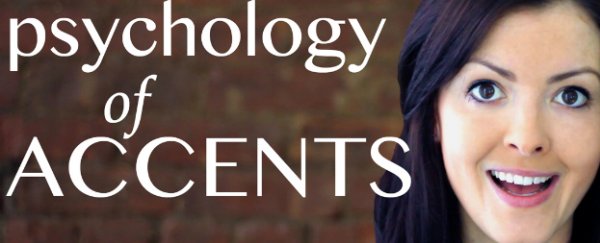Why does our brain recognise foreign accents, and why do we develop them in the first place? The latest episode of BrainCraft explores the science.
G'day mate! When you watch the episode above, you may think BrainCraft creator Vanessa Hill has an Aussie accent. But to her ears (and ours) she sounds perfectly normal.
So what causes our brains to detect certain pronunciations and sounds as "foreign"? And where do accents come from in the first place?
As Vanessa explains, it's well known in psychology that different sounds can convey meaning, even if they don't actually have meaning - for example, research shows that made-up words like 'bouba' make people think of soft and round shapes, where as a word like 'kiki' conjures up images of something sharp and pointy.
This also means that we can determine meaning from the way people sound, and studies have revealed that humans have an own-accent bias - so basically our brains automatically prefer our own accent over those of others. Even one-year-old babies automatically prefer the sounds of the language spoken in their home to other people's accents.
Accents also make us think certain things about the speaker, even if they're not true. For example, we're less likely to trust information from people with foreign accents - and the stronger the accent, the less trustworthy the speaker becomes. (Note: we're so glad you can't hear our accent from our typing).
In fact, the regions of the brain that light up when we hear someone speak even changes depending on whether the accent is familiar or not. All of this might explain why so many bad guys in American films are British.
But now that we're all on the internet constantly and forming our own social groups and dialects with people from all around the world, are accents becoming redundant? Maybe it's time we developed a universal, accent free accent…like emojis?
Watch the episode of BrainCraft above to find out what makes English people say "hahd" while Americans say "hard". (Which one does an Australian say? You'll have to watch to find out). Fascinating.

